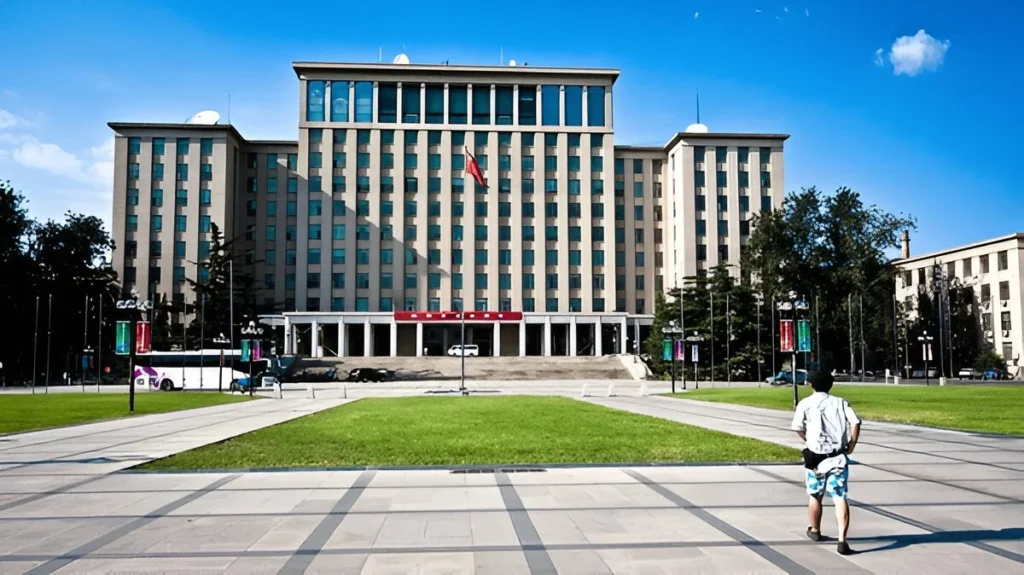Introduction to Studying Abroad
Why Study Abroad is a Life-Changing Decision
Studying abroad opens up a world of opportunities. You don’t just earn a degree—you gain experiences, broaden your perspective, and immerse yourself in a new culture. Imagine sitting in a café in Paris after your lecture, or joining a research project in a state-of-the-art lab in Tokyo. It’s about stepping out of your comfort zone, pushing boundaries, and growing both academically and personally. You’re not just learning in the classroom; you’re learning every time you navigate a new city, communicate in another language, or make friends from different backgrounds.
It changes your view of the world. You become more adaptable, independent, and open-minded. Employers love this. They see international experience as a sign of maturity, problem-solving ability, and global awareness. And let’s not forget the life skills—you’ll master budgeting, time management, and maybe even learn how to cook for yourself. Bottom line? Studying abroad is an adventure with long-term value.
Long-Term Benefits of an International Education
The benefits of studying abroad extend far beyond graduation. First, your résumé stands out. Having studied in a different country signals to employers that you’re globally competent. You’ve had to navigate unfamiliar systems, adapt to new environments, and communicate across cultures. That’s huge.

Second, international degrees often come with broader networking opportunities. Your peers, professors, and internship supervisors become global contacts. Many programs are designed to align with international industry standards, increasing your chances of landing a job—either abroad or back home—with a global firm.
Also, in many countries, studying abroad gives you an edge when applying for permanent residency or work permits. Governments value the contribution of international graduates, and many have pathways to extend your stay. So, this isn’t just a short-term academic choice—it’s a long-term investment in your future.
Choosing the Right Country
Academic Reputation and Language
When choosing where to study, academic reputation matters. Some countries are known for engineering, others for arts, and some for business. Your destination should align with your career goals. Research the top universities in your field and see how they rank globally. But reputation isn’t everything. The language of instruction is crucial too. Are you comfortable learning in that language? Will you need to take a proficiency test like IELTS or TOEFL?

Studying in a country where you’re fluent in the language will make everything easier—both in the classroom and in day-to-day life. However, even if it’s a new language, many students take this as an opportunity to learn something new, boosting their communication skills and cultural fluency.
Cost of Living and Tuition Fees
The cost of living can vary massively between countries. Tuition is just one part of the equation. You also need to consider housing, food, transportation, insurance, and personal expenses. In some places, tuition is free or subsidized for international students, but rent and daily expenses might be high. In others, it might be the reverse.

So, start by setting a rough budget. Then, match it with your potential study destinations. Make sure to factor in hidden costs too—like visa fees, flight tickets, and initial settlement expenses. A financially viable plan means less stress later on and more focus on your studies.
Cultural Compatibility and Student Lifestyle
Let’s talk about culture. Are you someone who thrives in bustling cities or serene towns? Do you prefer structured academic environments or creative freedom? Different countries have vastly different education systems and lifestyles. Research how students live, what the teaching methods are like, and what extracurricular activities are available.

Culture shock is real, but the more prepared you are, the easier the transition. Some students choose destinations similar to their home culture to minimize adjustment time. Others dive into the unfamiliar for the full experience. Either way, understanding the social norms, weather, food, and general lifestyle beforehand can help you avoid surprises.
Selecting the Perfect University and Program
Factors to Consider When Shortlisting Universities
Not every great university is right for every student. When narrowing your options, look beyond rankings. Consider location, class sizes, faculty expertise, campus facilities, and international student support. What are alumni saying? What are the job placement stats?
Also, check if the university offers internships, study-abroad programs within your program, and language support if you need it. Some schools are more research-oriented, others focus on practical skills. Match the university’s strengths to your academic interests and career plans. A good fit is more important than a famous name.
Types of Degrees and Their Duration
Different countries have different academic structures. A bachelor’s degree may take three years in one country and four in another. Master’s programs might range from one year to two. Some degrees offer co-op or internship options that extend the duration but boost employability.
Know what you’re signing up for. Will your degree be recognized globally? Is it enough for your desired profession? For example, some fields like law or medicine have strict licensing rules depending on where you practice. Choose a program that aligns with both your academic goals and professional ambitions.
Accreditation and Global Recognition
Never skip this part. Accreditation is the seal of legitimacy. An accredited institution meets specific academic standards, ensuring your degree will be recognized by employers and other universities. Some unaccredited schools may still issue degrees—but these are often not respected or valid for further study or jobs.
Check the official government or education board websites in your chosen country for recognized institutions. Also, see if your program is affiliated with any international organizations or industry bodies—it’s a sign of quality and can help you later in your career.
Understanding Admission Requirements
Academic Transcripts and GPA Expectations
Your past academic performance is a key factor. Universities usually require transcripts from your previous education—high school for undergraduate programs, and college/university transcripts for postgraduates. These need to be in English (or translated), certified, and sometimes evaluated according to the local grading system.
Each university will specify a minimum GPA, and competitive programs will naturally have higher expectations. But it’s not just about grades. Some programs look for upward academic trends, strengths in specific subjects, or overall potential. Make sure your transcripts tell the full story.
Standardized Test Scores (IELTS, TOEFL, GRE, etc.)
Most universities in non-English-speaking countries will ask for proof of language proficiency. That usually means passing a standardized test like IELTS or TOEFL. Some might also accept the Duolingo English Test.
For certain graduate programs, you might also need to take tests like the GRE or GMAT. These measure your readiness for advanced study and are often mandatory for business, science, or tech-related programs. Prepare well in advance—these scores can make or break your application.
Letters of Recommendation and Statement of Purpose
These documents show who you are beyond numbers. A letter of recommendation should come from someone who knows you academically or professionally and can vouch for your skills and character. Most universities require two or three.
Your Statement of Purpose (SOP) is even more personal. It’s your chance to explain why you want to study that specific program at that specific university. Be honest, focused, and passionate. Avoid clichés. Talk about your goals, what inspires you, and how the program fits into your plans. A strong SOP can tip the scales in your favor.
The Application Process Explained
Creating a Timeline for Application
Timing is everything when it comes to applying for study abroad programs. Each university and country has its own schedule, and missing a deadline can mean waiting an entire year. So, start early—ideally 12 to 18 months before your intended start date. This gives you ample time to research, prepare documents, take standardized tests, and complete your applications without rushing.
Break your timeline into phases. Start with research and test preparation. Then move into document collection and drafting your personal statement. Allocate time for revisions and feedback. Don’t forget buffer time in case of delays with recommendations or test results. Having a clear, structured plan ensures that nothing slips through the cracks.
Also, note that application deadlines often come in multiple rounds—early decision, regular decision, and sometimes rolling admissions. Early applications can boost your chances and give you more time to prepare for visas and travel later on.
How to Fill Out University Applications Effectively
Filling out applications might seem tedious, but attention to detail is crucial. Start by creating a checklist for each university. Requirements can vary widely—even within the same country. Ensure you know what’s needed: application forms, academic records, test scores, SOP, LORs, resume, portfolio (if applicable), and application fee payment.
Use the official university portals or centralized platforms depending on the country. Double-check for spelling errors, mismatched data, or incomplete fields. Stick to the format guidelines for essays and documents. Upload only what’s asked and name files clearly (e.g., John_Doe_Transcript.pdf).
If you’re applying to multiple universities, keep track of submissions using a spreadsheet or project management tool. Note application statuses, follow-up dates, and interview calls. A well-organized application stands out and avoids last-minute panic.
Common Mistakes Students Make During Applications
Even smart students slip up during the application process. One of the biggest mistakes is procrastination—starting too late and rushing through critical steps. This leads to poorly written essays, missing documents, and errors that cost opportunities.
Another common error is not tailoring SOPs to individual universities. A generic essay won’t cut it. Admission panels can tell when an application lacks personalization. Similarly, submitting unverified or non-translated documents can lead to outright rejection.
Lastly, many students underestimate the importance of test scores or fail to prepare properly. Don’t take standardized exams lightly. Prepare, practice, and retake if necessary. Every part of your application counts—treat each component like it’s the most important.
Financial Planning and Scholarships
Estimating Your Total Study Budget
Studying abroad is a major financial commitment, and poor planning can lead to unnecessary stress. To estimate your total budget, start by listing tuition fees, which vary by country, university, and course. Then add living expenses: rent, food, transportation, health insurance, study materials, and personal spending.
Factor in one-time costs like visa applications, air travel, and settling in (e.g., buying household items, SIM cards, public transport passes). Don’t forget recurring costs such as mobile plans and utilities. Build a monthly estimate and multiply it by the duration of your course to understand the full picture.
It’s wise to build a buffer of 10–20% for unexpected expenses. Having this financial clarity not only helps with your planning—it’s often a requirement during the visa process, where you’ll need to prove sufficient funds.
Types of Scholarships and How to Apply
Scholarships can significantly reduce the financial burden of studying abroad. They come in various forms: merit-based, need-based, country-specific, course-specific, and those offered by universities or external organizations.
Merit-based scholarships reward academic performance, leadership, or special talents. Need-based aid helps students with limited financial means. Some scholarships target students from specific regions or promote diversity and inclusion.
Start your scholarship hunt early—many deadlines come well before university admission decisions. Look for scholarship directories, university websites, government portals, and NGOs. Tailor each application to the specific criteria. A strong academic record, a compelling essay, and clear documentation can give you the edge.
Other Funding Options Like Grants and Assistantships
Besides scholarships, you might qualify for grants or assistantships. Grants don’t need to be repaid and often support research or specific projects. Check with academic departments, foundations, or cultural exchange programs.
Assistantships—like research or teaching assistant roles—are common in graduate programs. They offer tuition waivers and stipends in exchange for work. These are competitive and usually require prior academic or professional experience.
Some countries allow part-time work for international students, which can help offset living costs. While you shouldn’t rely on this as your main source of income, it can supplement your budget and provide valuable work experience.
Preparing for the Visa Process
Types of Student Visas
Each country has its own visa classification system for students. Generally, student visas fall into categories like full-time study, short-term exchange, or vocational training. It’s essential to apply for the right type based on your course and its duration.
Some countries issue visas that are tied to your specific university and course, meaning you can’t switch easily. Others provide more flexibility. Research what your visa allows—can you work part-time? Can you bring dependents? Can you extend it after graduation?
Also, be aware of the distinction between a visa and a residence permit. In some places, the visa gets you in the door, but you’ll need to apply for a local permit upon arrival. Know the entire chain of documentation before you travel.
Visa Requirements Based on Destination Country
Visa requirements vary, but generally include:
- Proof of admission
- Valid passport
- Recent passport-sized photos
- Academic transcripts and test scores
- Financial documents (bank statements, sponsorship letters)
- Health insurance
- Proof of language proficiency
- Police clearance certificate
- Visa fee receipt
Each embassy or consulate will provide a checklist—follow it meticulously. Missing or incorrect documents are the #1 reason for visa delays or denials. Always apply through official government channels or authorized partners.
Also, note the visa processing times. Some countries take just a few days; others take weeks. Start the process early and monitor your email for updates or additional document requests.
Preparing Visa Documents Correctly
Visa officers scrutinize your documents closely. So, accuracy and organization are key. Double-check all forms for spelling errors, date mismatches, or conflicting information. Get all translations certified and notarized if required.
Financial documents deserve special attention. Ensure bank statements are recent and clearly show your ability to fund your education and stay. If you have a sponsor (like a parent or guardian), include their bank statements, income proof, and an affidavit of support.
Scan and photocopy everything before submission. Keep originals safe for your visa interview or later use. Label each file and place them in the order specified by the embassy. A well-prepared document folder makes the process smoother and shows that you’re serious and organized.
Visa Interview Preparation
What to Expect in a Student Visa Interview
Not every student is required to attend a visa interview, but for those who are, it’s a critical step. The interview is usually conducted at an embassy or consulate, and it’s your chance to demonstrate that you’re a genuine student with serious intentions.
Expect questions about your academic background, why you chose that university and country, your career goals, and your financial situation. The interviewer may also ask about your plans after graduation or your ties to your home country.
Dress professionally, arrive early, and be polite. The tone is formal, but not intimidating. It’s not a test—just a conversation to assess your preparedness and credibility.
Common Interview Questions and How to Answer Them
Here are some typical questions:
- Why do you want to study in this country?
- Why this university and program?
- Who is funding your education?
- Do you plan to return home after your studies?
- What are your career goals?
Answer honestly and confidently. Don’t memorize responses—it sounds robotic. Instead, understand the intent behind each question and prepare a natural, thoughtful response. Keep answers concise and clear. If you don’t understand a question, it’s okay to ask for clarification.
Practice mock interviews with friends or mentors. The more you rehearse, the more comfortable you’ll feel during the actual interview.
Tips to Make a Good First Impression
First impressions matter—a lot. Here’s how to stand out:
- Dress neatly in formal or business attire
- Maintain good posture and eye contact
- Smile and greet the officer politely
- Stay calm and composed throughout the interview
- Speak clearly and confidently
Bring all required documents in a well-organized folder. Avoid over-explaining or sharing irrelevant information. Show that you’ve done your homework—about your course, university, and financials.
Remember, the visa officer isn’t trying to trick you. They just want assurance that you’re a genuine, responsible student. Confidence, clarity, and preparation go a long way.
After Receiving the Visa
Booking Travel and Accommodation
Once your visa is approved, the countdown begins. The next step is booking your flight. Look for student discounts and flexible tickets in case your plans change. Flying a few weeks before your course starts gives you time to settle in and overcome jet lag.
Accommodation is equally important. Start by checking if your university offers on-campus housing. It’s often safer and more convenient for newcomers. If not, look into private rentals or student hostels nearby. Use verified housing platforms, and never transfer money without seeing proof or a signed lease agreement.
Location matters—choose a place close to campus and public transport. Consider the neighborhood’s safety, amenities, and rental costs. Some students prefer shared apartments to save money and make friends. Plan ahead to avoid last-minute panic.
Also, start packing smart. Bring necessary documents, weather-appropriate clothes, medications, and electronic gadgets. But avoid overpacking—most items can be bought once you arrive.
Important Pre-Departure Tasks
There’s a lot to do before you board that plane. Begin with gathering all your documents—passport, visa, university offer letter, accommodation proof, financial documents, and travel insurance. Keep both digital and physical copies.
Next, schedule any required medical tests or vaccinations. Some countries mandate health checks before departure. Open an international bank account or convert enough currency for initial expenses. Contact your university for orientation dates and pre-arrival briefings.
Notify your local bank of your travel plans so your card isn’t blocked abroad. Unlock your mobile phone so it works with foreign SIM cards. Download essential apps like maps, translators, and transport guides.
Also, mentally prepare for life abroad. Say your goodbyes, spend time with loved ones, and emotionally prepare yourself for the big move. It’s okay to feel nervous—it’s a major life transition.
Joining Student Forums and Support Groups
Connecting with other students before you leave can ease the transition. Most universities have online groups or social media forums for incoming international students. Join these to ask questions, get tips, and even find roommates.
Support groups are valuable for advice on everything from airport pickup to the best local grocery stores. You might also find mentors—senior students from your country who’ve been through it all.
These groups often organize virtual meetups and pre-departure events. Participating helps you build connections and arrive feeling less like a stranger. It’s also a great way to keep updated on any last-minute changes or announcements from your university.
Understanding Post-Arrival Responsibilities
Registering with Local Authorities
Your responsibilities don’t end once you land. In many countries, international students must register with local authorities or immigration departments within a few days of arrival. This could be a police registration, residence permit application, or health check.
Failing to register on time can lead to penalties or visa issues. So, make it a top priority. Your university will usually guide you through the process, or it may even arrange group registrations for new students.
You’ll need to bring your passport, visa, address proof, and university enrollment letter. Sometimes, biometric data or photos are required. Once completed, keep the registration document safe—it might be needed for opening bank accounts or extending your visa later.
Setting Up Bank Accounts and Mobile Services
Getting a local bank account is essential for managing your finances. It allows you to receive money from home, pay rent, and avoid foreign transaction fees. Universities often partner with banks to simplify this process for international students.
Choose a bank with good student offers, minimal fees, and digital banking options. You’ll need identification documents, proof of address, and your student visa. Some banks may also require a tax ID or reference letter.
Next, get a local SIM card. This ensures cheap data and easy communication. Most countries have prepaid and contract options. Start with a prepaid plan to avoid long-term commitments until you’re familiar with the providers.
Staying Compliant with Visa Conditions
Understanding and respecting your visa conditions is crucial. Violations can lead to serious consequences, including deportation or being barred from re-entry. Common conditions include full-time enrollment, attendance requirements, and limits on working hours.
Keep track of your course credits and grades—falling below academic expectations might affect your visa status. Always inform your university and immigration authorities of any address change or program switch.
If you plan to travel during holidays, make sure your visa remains valid for re-entry. Keep an eye on expiry dates and start your renewal process early if needed. Staying informed and compliant ensures a smooth and worry-free stay.
Balancing Studies and Life Abroad
Adjusting to a New Academic System
Academic systems vary widely from country to country. You might find a more discussion-based approach, different grading styles, or heavier emphasis on independent research. This can be both exciting and challenging.
Take time to understand the expectations. Attend orientation sessions, read course guides carefully, and don’t hesitate to ask professors for clarification. If you’re used to rote learning, adapting to critical thinking and group work might take effort—but it’s worth it.
Use campus resources like writing centers, academic advisors, and peer mentoring. Learning how to manage multiple assignments, presentations, and readings at once is part of the growth. Over time, you’ll not only adjust—you’ll thrive.
Managing Culture Shock and Homesickness
Moving to a new country is a rollercoaster of emotions. At first, everything feels exciting. But soon, cultural differences, language barriers, and missing home can trigger stress. This is totally normal.
Homesickness can sneak up on you, especially during festivals, family events, or stressful times. Don’t isolate yourself. Stay connected with family via calls and video chats. Try to maintain your routines and self-care practices.
At the same time, immerse yourself in your new environment. Try local food, participate in cultural events, and make friends from different backgrounds. The more you engage, the quicker you adapt. Seek counseling support if needed—many universities offer free services for students.
Building a Social and Professional Network
One of the biggest perks of studying abroad is the global network you build. From classmates and professors to internship mentors and alumni, each person can play a role in your personal and career development.
Join student clubs, attend workshops, and network through academic and professional events. Volunteering and part-time jobs are also great ways to meet people and gain soft skills.
A strong network helps you feel supported and opens doors to internships, jobs, and references. Don’t underestimate the value of the connections you make—they could shape your future in unexpected ways.
Opportunities After Graduation
Post-Study Work Permits
Many countries offer work permits that allow international students to stay and gain work experience after graduation. These are often called post-study or graduate visas. They give you time to apply for jobs, gain relevant experience, and consider longer-term residency.
Eligibility varies—some countries require you to have studied for a minimum number of years or to apply within a certain timeframe after graduation. Keep all your documents ready, including transcripts, graduation certificates, and proof of job applications.
Start planning early. Attend career fairs, meet with university career advisors, and prepare your résumé and cover letters to match local standards. This phase is your bridge between study and professional life abroad.
Pathways to Permanent Residency
For many students, studying abroad is the first step toward permanent settlement. If that’s your goal, research the pathways to residency in your host country. These may include job offers in skilled occupations, continuous residence, or points-based immigration systems.
Having local education and work experience gives you a competitive edge. Some countries prioritize international graduates for residency, recognizing their cultural integration and contribution to the economy.
However, immigration laws change frequently. Stay updated and seek legal or expert advice when needed. Following the right path legally and patiently increases your chances of achieving long-term goals.
Leveraging an International Degree for Career Growth
Even if you return home, your international education pays dividends. Employers often value the global exposure, adaptability, and independence you’ve gained. It gives you an edge in job interviews and professional settings.
You’ve developed skills that go beyond textbooks—cross-cultural communication, problem-solving, and a broader worldview. Use your university network and international alumni to explore global job markets, remote roles, or entrepreneurship.
Whether abroad or at home, your study abroad experience is a powerful asset. It shapes not just your career, but your entire outlook on life.
Staying Connected with Home Country
Maintaining Cultural Identity
Living abroad doesn’t mean letting go of who you are. In fact, your cultural identity becomes even more important when you’re far from home. Embrace it. Celebrate your traditions, cook your native food, wear your cultural attire during festivals, and share your customs with others.
Universities often have cultural clubs or international student organizations where you can express your heritage and meet people from your country. Participating in events like national days, food fairs, or cultural nights helps you stay grounded and connected to your roots.
Preserving your cultural identity not only strengthens your sense of belonging but also enriches your host community’s diversity. It becomes a bridge for mutual respect and learning.
Staying in Touch with Family and Friends
Regular communication with your loved ones back home is vital for emotional well-being. Thankfully, technology makes it easy—video calls, social media, and messaging apps can keep you just a tap away.
Create a routine to check in, share updates, or simply chat. Whether it’s celebrating a birthday virtually or helping with family decisions, staying involved in your home life brings comfort and continuity.
You can also send postcards, souvenirs, or traditional gifts during holidays. This gesture keeps the emotional bond alive despite the physical distance. Staying close to your support system helps you handle challenges abroad more gracefully.
Planning Visits or Return Trips
While studying abroad, plan your return visits wisely. Coordinate with your academic calendar to avoid missing important classes or exams. Holidays and semester breaks are perfect for visiting home, recharging emotionally, and reconnecting with family.
Before traveling, ensure your visa allows re-entry, and keep all necessary travel documents updated. If returning permanently after graduation, plan ahead for the transition—like job hunting, transferring academic credits, or starting a new phase in your home country.
Returning home doesn’t mean the end of your global journey. You bring back not just a degree, but a transformed version of yourself—more independent, aware, and ambitious.
Conclusion
Planning to study abroad is one of the most transformative decisions you’ll ever make. But it’s not just about choosing a country or getting a student visa—it’s a holistic journey that spans academic planning, emotional readiness, financial structuring, and legal obligations.
From crafting the perfect application to surviving visa interviews, from adjusting to new cultures to leveraging your international degree for a global career—each step has its unique challenges and rewards. The key is to stay informed, organized, and proactive.
Studying abroad isn’t just about education—it’s about becoming a global citizen. You learn to think differently, embrace diversity, and take responsibility for your growth. It’s not always easy, but it’s always worth it.
So if you’re on the edge of this life-changing decision—go for it. The world is waiting to be your classroom.
FAQs
- What’s the best time to start my study abroad application?
Start at least 12 to 18 months in advance. This gives you enough time for research, test prep, document gathering, and application submissions without last-minute stress. - Do I need to show proof of funds for a student visa?
Yes. Most countries require proof that you can financially support your tuition and living expenses. This is typically done through bank statements, scholarship letters, or affidavits of support. - Can I work while studying abroad?
Yes, but with limitations. Most countries allow part-time work (usually 15–20 hours/week) during semesters and full-time during breaks. Check your visa conditions to stay compliant. - What if my visa gets rejected?
Don’t panic. Find out the reason for rejection—common issues include incomplete documents or weak financial proof. You can reapply after correcting the issues or explore other country options. - Is it hard to adjust to a new country’s academic system?
Initially, yes—it takes time to adapt to different teaching styles and grading systems. But with the right attitude and use of campus resources, most students transition smoothly within the first semester.

Leave a Reply